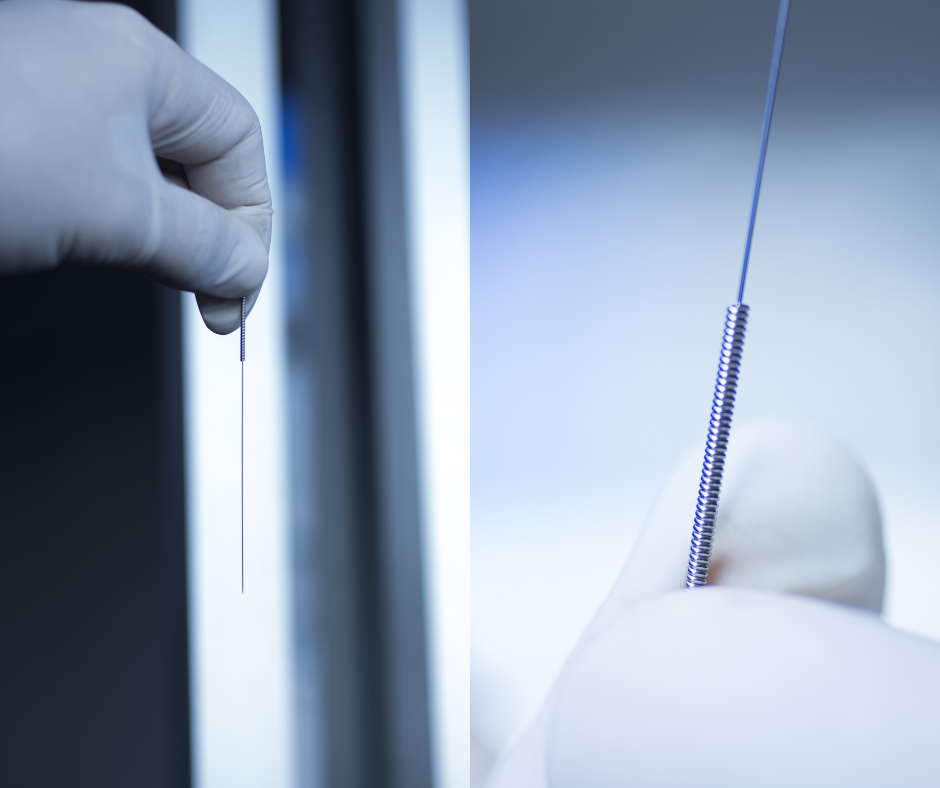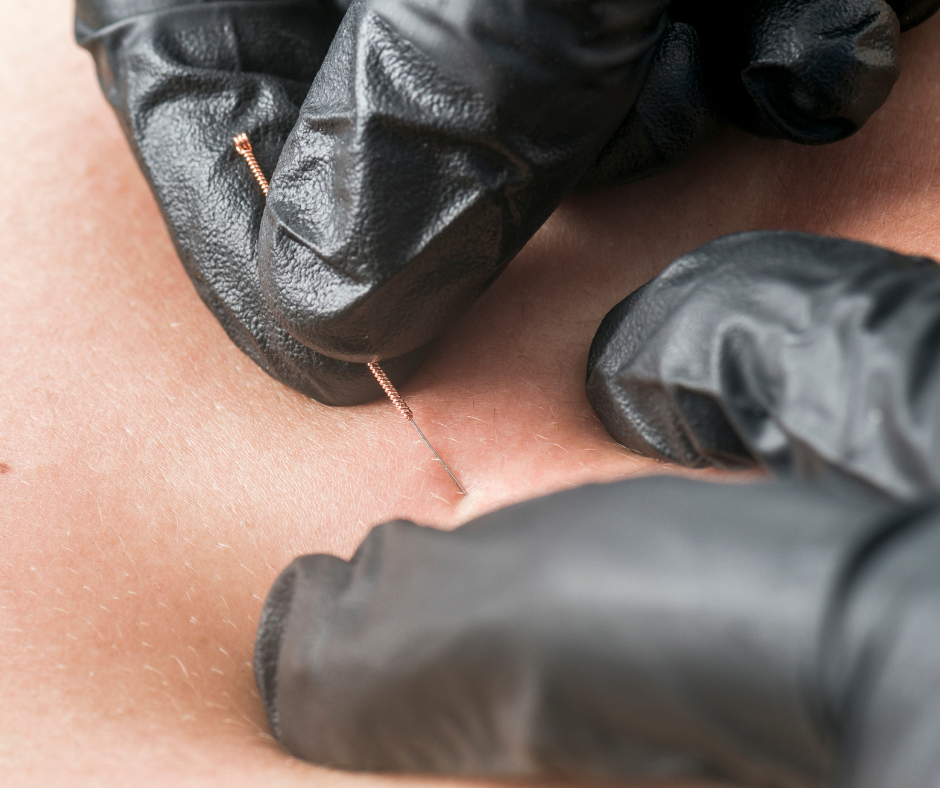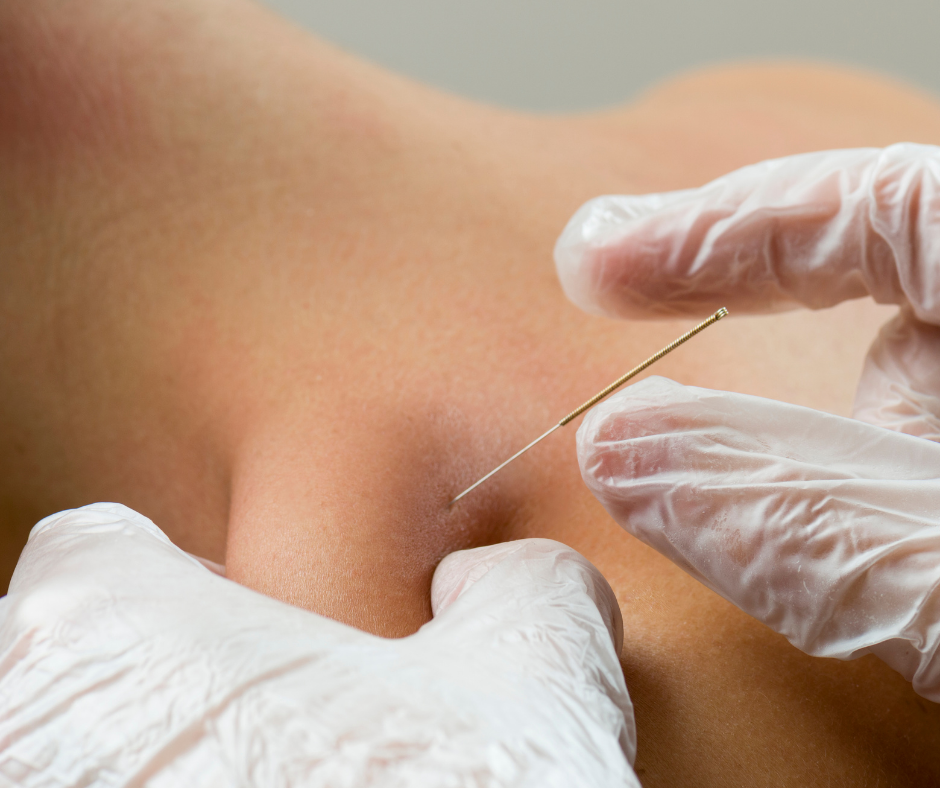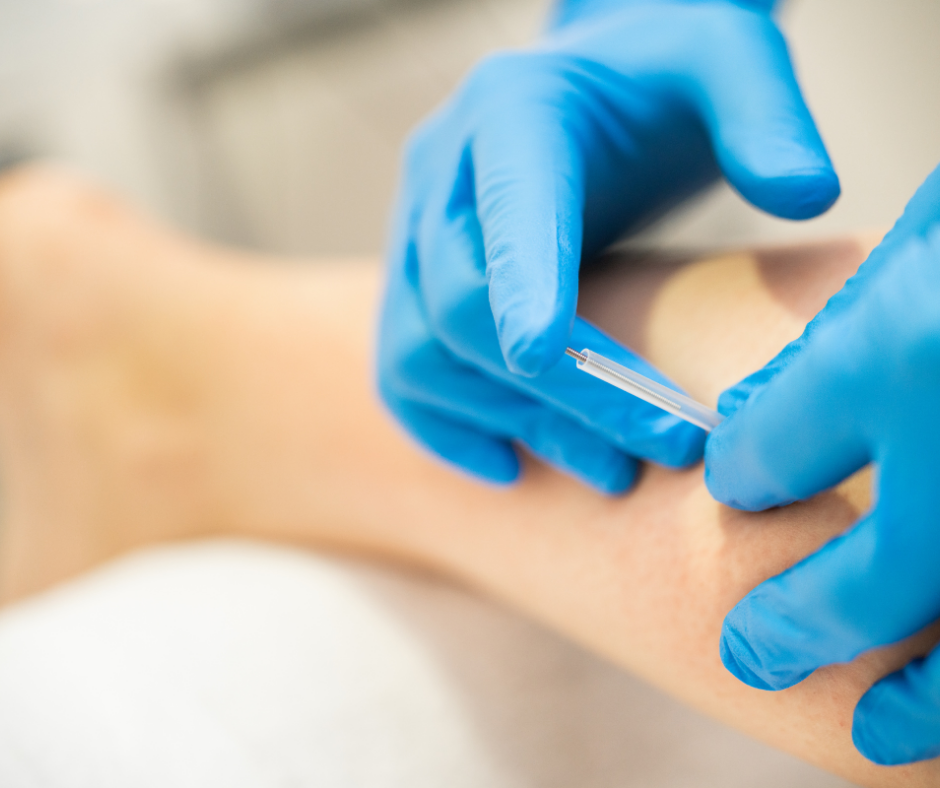Dry Needling
- Nashville PT
- Sep 15, 2021
- 3 min read

WHAT IS DRY NEEDLING?
Dry needling is a treatment physical therapists can do to help release trigger points or tight bands in a muscle. It is not acupuncture or based on any traditional Chinese medicine principles. It is based on western medicine principles.
Dry needling involves using a thin filiform (solid) needle inserted directly into the muscle. It is called "dry" needling because the needle does not contain any medication or solution to be injected.

This technique allow your PT to get deep down into muscles that might otherwise be difficult to reach with just hands on manual therapy techniques. It can also be useful in stubborn muscles that just won't relax with other techniques as well.
WHAT IS A TRIGGER POINT?
A trigger point is tight band of muscle. Trigger points are usually tender to touch and can refer pain to other areas. For example, a trigger point in the rotator cuff may cause pain further down the arm.
Sometimes trigger point referral patterns can mimic nerve pain patterns so it's important to be evaluated by a physical therapist to determine the source of your pain so it can be correctly treated to resolve it as quickly as possible.
Trigger points can contribute to abnormal movement patterns and can cause a muscle to appear "weak" due to the pain and limited ability of the muscle to contract effectively as a whole.
WHY CHOOSE DRY NEEDLING?
Dry needling can be very effective when it's used as part of a comprehensive treatment plan. Dry needling on it's own is not a silver bullet. Trigger points develop because of some other underlying abnormalities (think muscle weakness or imbalance, mobility issues, movement pattern dysfunction, repetitive activity, etc).

If you only dry needle and that's all you do, you might get relief for a few days but it will come back because you haven't gotten to the root of the problem. The other underlying issues mentioned above need to be addressed to be sure the painful trigger point does not return. When it is used along with other physical therapy treatment, however, it can help quickly relieve symptoms and return function.
"Physical therapists use dry needling to release or inactivate trigger points to relieve pain or improve range of motion. Preliminary research supports that dry needling improves pain control, reduces muscle tension, and normalizes dysfunctions of the motor end plates, the sites at which nerve impulses are transmitted to muscles. This can help speed up the patient's return to active rehabilitation." (source)
WHY CHOOSE A PHYSICAL THERAPIST FOR DRY NEEDLING?
Dry needling doesn't belong exclusively to physical therapy. There are other allied health professions that also offer dry needling. However, physical therapists have the advantage of having EXTENSIVE knowledge of anatomy and the ability to pair the dry needling with other physical therapy techniques and prescriptive exercises to not only relieve your pain but SOLVE your problem and return you to the things you love to do without pain.
WHAT CAN YOU EXPECT WITH DRY NEEDLING?
Dry needling is a safe and effective treatment for trigger points and tight muscles. In properly trained hands, it carries a very low risk of serious injury. The most common side effects are potential for bruising at the treatment site and soreness for about 24 hours after treatment. The soreness is very similar to that of a delayed onset muscle soreness you would have from working out. After the soreness abates, you should feel less tightness and pain in the areas treated.

The treatment itself can be mild to moderately painful when the needle makes it into the trigger point but is very short lived. We are looking for a quick twitch of the muscle to indicate we've gotten into the right spot and then the needle is typically removed. The actual insertion of the needle is often not even felt.

Again, and we can't stress this enough, it is extremely important to follow through with your home exercise program after dry needling to get the maximum benefit of your treatment.
WHY CHOOSE NASHVILLE PT FOR DRY NEEDLING?
In addition to our PT's having extensive postgraduate training in dry needling, you'll get completely one on one visits when you see us. This means more time spent getting to the root of your problem and treating it effectively with fewer visits overall and more independence with your plan of care.
If you're ready to explore dry needling as part of your treatment, book an evaluation with us and in the notes section mention that you're interested in dry needling. You can book your evaluation by clicking HERE.
#dryneedling #dryneedle #triggerpointdryneedling #triggerpoint #triggerpoints #physicaltherapy #nashvillephysicaltherapy #keepingactivepeopleactive #nashvillept #nashvillephysicaltherapist #muscleknot #muscletightness #knots #tightmuscle

Comments